Students and locals gather at Palazzi Community Center for a heartfelt presentation of sensibile alle minuscole.
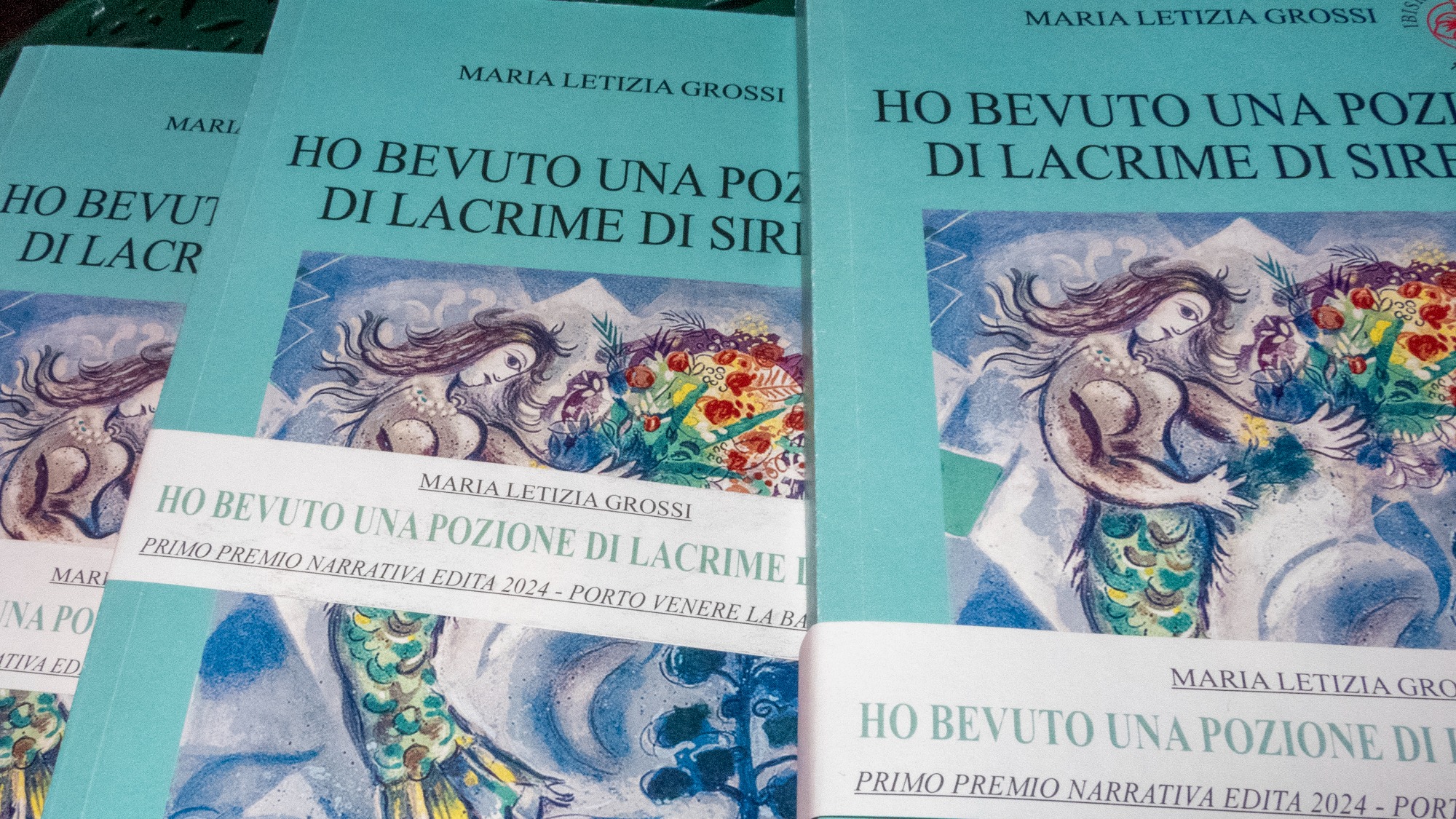
The Healing Power of Literature
Maria Letizia Grossi’s Journey Through Grief, Art & Shakespeare
In moments of uncertainty, it is often through the lens of fiction that we find a way to process our experiences and make sense of the world. Literature has a unique ability to offer both reflection and escape. That is what Italian author Maria Letizia Grossi aimed to explore with her newest novel, Ho Bevuto una Pozione di Lacrime di Sirena.
On Tuesday, October 29, The American University of Florence hosted a book reading event at the Palazzi Community Center. The novel offered a unique opportunity to explore themes of trauma, healing, and the power of art through the lens of Grossi's eyes. She spoke about her inspiration for the book, the creative process, and the various influences that shaped its development.
The story follows Anthony, an English actor struggling to cope with the loss of his wife and the emotional toll of the pandemic. In an attempt to find some peace, he travels to Marsala, where he begins preparing for a role in Shakespeare’s The Winter’s Tale. It is here that his pain begins to unravel.
Anthony starts experiencing hallucinations, conversing with the ghost of William Shakespeare, who appears to him in full Elizabethan clothing. Shakespeare speaks to him in verses from his plays and becomes a kind of guide, helping Anthony navigate the difficult path toward healing and rediscovery. Through these surreal encounters, Grossi’s novel reflects on the power of art and its capacity to offer company in times of personal crisis.
A central theme of the novel is the intersection of Shakespearean drama and contemporary life, particularly in the context of personal trauma and a global pandemic. Grossi explains that the title of the book, Ho Bevuto una Pozione di Lacrime di Sirena, translated in english to I Drank a Potion of Mermaid Tears, was inspired by a line from one of Shakespeare’s sonnets. The idea of the mermaid, she said, was tied to the perception of fear and hope. “The wrong associations we sometimes make between emotions, where fear can feel like hope, or vice versa,” Grossi explains.
She also discussed how she wanted to explore the complexity of emotions, drawing from both Shakespeare's work and her own personal experiences during the pandemic. When asked why she chose Shakespeare as a central figure in the novel, Grossi responded, “Shakespeare is timeless. His work transcends centuries and speaks to the soul of every person. For me, he provides answers to all my questions about life and love.”
This connection to Shakespeare was not merely thematic; it was also structural, as the novel intertwines Shakespeare’s works with the emotional journey of its protagonist.
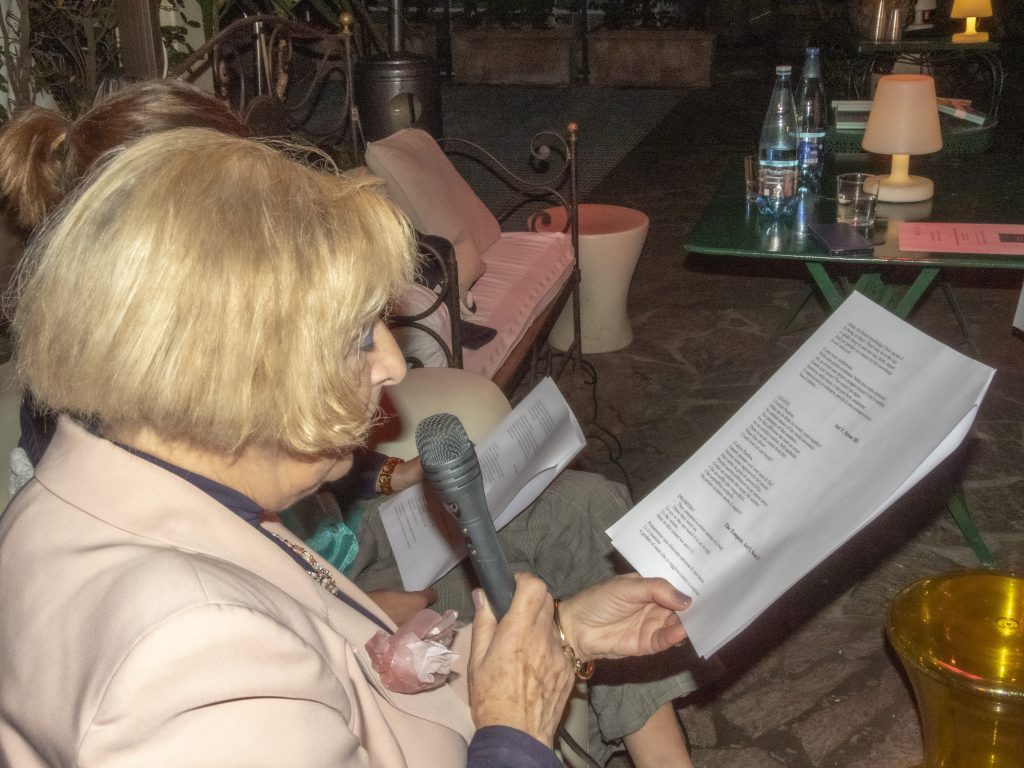
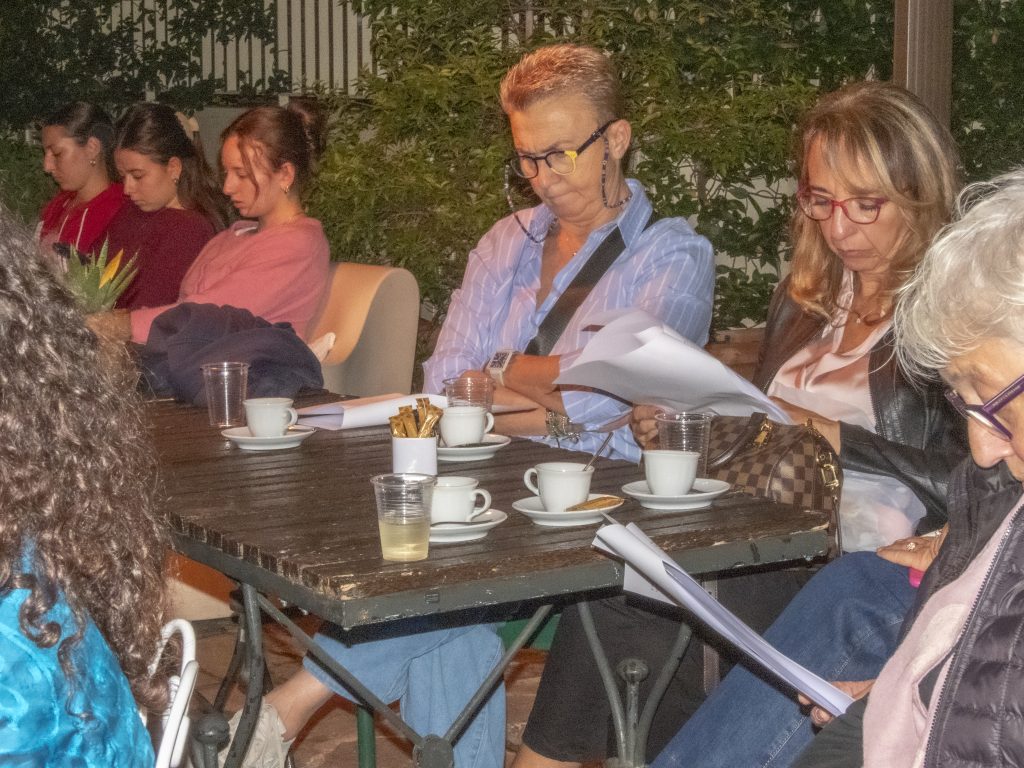

The author also spoke on how the pandemic deeply influenced the creation of Anthony’s character. Creating a comparison to the Black Plague of 1348, Grossi introduced the fictional “colovirus,” a virus in her novel that mirrors the symptoms of the pandemic. She shared how the experience of lockdowns and isolation shaped the emotional theme of the book. “I wanted to write about the pandemic, but not directly. By calling it the colovirus, I connected it to historical pandemics like the plague, which people endured in the past,” said Grossi.
She also discussed the novel's exploration of trauma and mental health, particularly through Anthony’s relationship with Nina, a Sicilian psychiatrist. “The book is about healing, learning to reconnect, to cry, to take care of others, and to rebuild after trauma,” she says. "It’s a reflection on how we survived the pandemic through care and solidarity, even from a distance.”
There is a great power in art and literature to help us navigate personal struggles. Grossi explained how, for her, art was therapeutic because it allowed her to process her emotions in isolation, “During the pandemic, I wrote every day. Writing kept me connected, even when the world seemed distant.”
She went on to mention how the therapeutic elements of literature, particularly the works of Shakespeare, had helped her through difficult times. “I’ve already finished another novel,” she shared, “partly autobiographical, and it continues the journey of understanding ourselves through art.”
One surprising aspect of the novel is its political fantasy element, in which Grossi imagines a scenario where Italy exits the European Union, similar to the UK's Brexit. This hypothetical element goes back to Shakespeare’s influence, as the character of Anthony - who shares a name with Shakespeare’s Mark Antony - delivers a speech in the book inspired by Julius Caesar. Grossi shared that this fantasy aspect reflects her belief in the importance of European unity and cultural heritage, despite political challenges: "the character’s speech is a plea to stay in the European Union, to preserve not just financial ties, but the cultural and human project that Europe represents."
The occasion provided a deep exploration of themes like love, loss, healing, and the power of Shakespeare’s work. Through Anthony’s journey and his connection to the play, Grossi invited readers to reflect on the challenges of our time, from the pandemic to the personal struggles that shape us. The event not only brought Grossi’s novel to life but also highlighted the idea that, through art and literature, we can find a path to healing and reconnection.
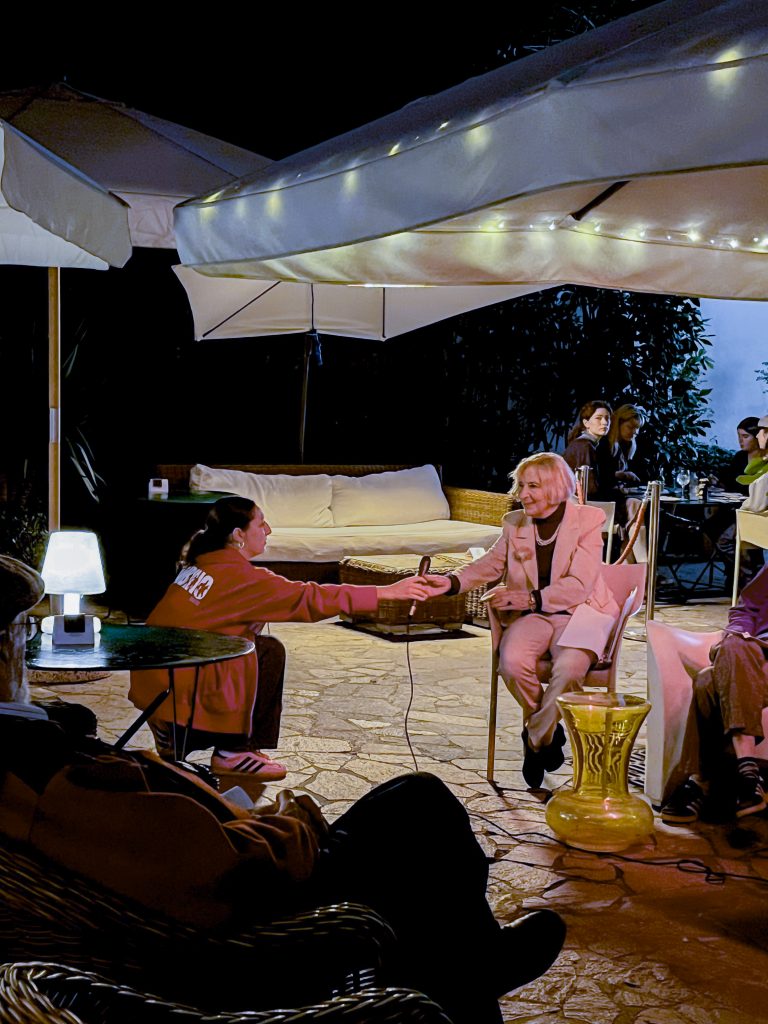
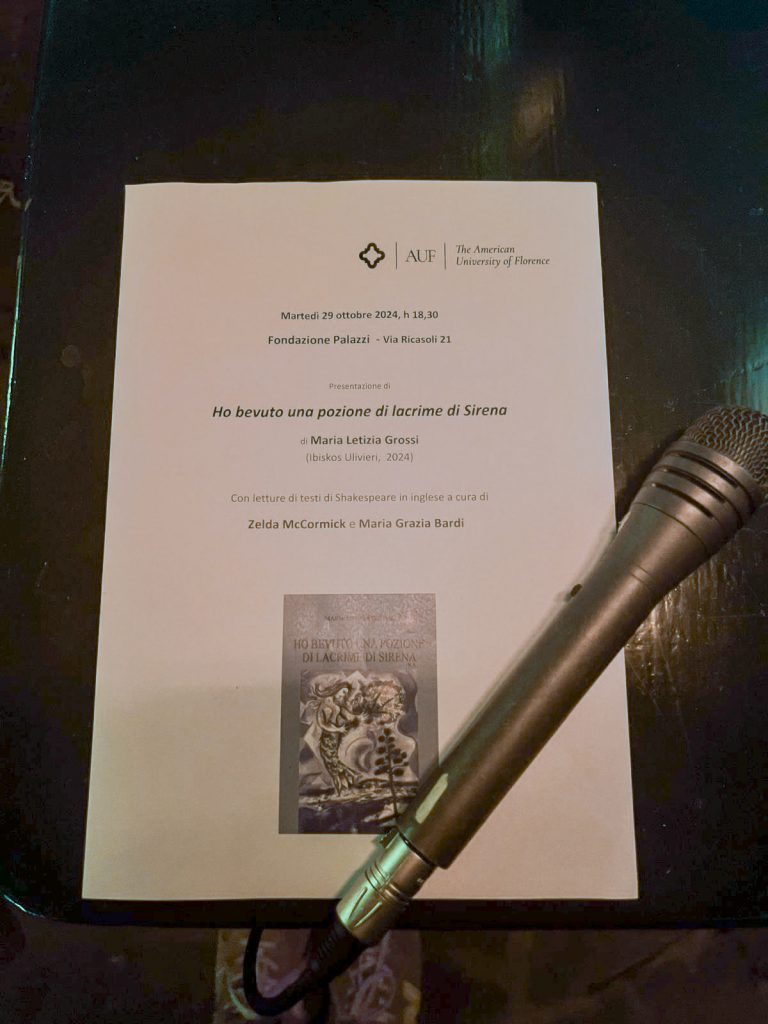

Please join us at the Palazzi Community Center for the final "Letture in Giardino" of the semester on Tuesday, December 2, 2024. For more information, and to reserve your spot, click here.
Latest news
From Farm to Fork: Rethinking Food Systems in Florence
Students at AUF are uncovering the hidden impacts of the global food system and discovering what it means to eat sustainably.
The Terrarium: How to Build and Maintain It
Tiziano Codiferro’s terrarium master class provides an insight into how to start your own small scale garden.
